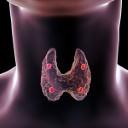-
Living Beyond a Diagnosis
Judy Pearson was surprised by the demands of cancer survivorship. Here, she offers tips on how to look at life after cancer.
by Judy Pearson
-
When Young Adults Need Care
For adolescents and young adults who have been diagnosed with cancer, caregivers can play an influential—but often overlooked—role in providing help and support.
by Carly Flumer
-
Drug Dependence After Breast Surgery
A study indicates that some breast cancer patients who receive mastectomy and reconstruction may be at risk of persistent drug use following surgery.
by Marcus A. Banks
-
Beating the Bully Inside
To gain control over fear of my breast cancer recurring, I called on lessons learned as a 5-year-old confronting the neighborhood bully.
by Joan Harris
-
Planning to Survive
Survivorship care plans can prepare cancer patients to get the best medical care and maintain their quality of life following treatment.
by Carly Flumer
-
A Missed Conversation
Despite national guidelines urging oncologists to bring up risks of infertility posed by cancer treatment, many young cancer patients are never told about these risks or counseled on their fertility preservation options.
by Marcus A. Banks
-
A Modern Family
My diagnosis with colorectal cancer at age 32 affected my fertility. As a result of my experiences, I help others who have been diagnosed with cancer understand their choices related to fertility preservation and their options for becoming a parent.
by Allison Rosen
-
Drinking After a Diagnosis
A study illuminates the alcohol consumption habits of cancer survivors.
by Jen Tota McGivney
-
“Congrats! You Have the ‘Good’ Cancer”
Many people know thyroid cancer as a cancer type with a relatively good prognosis, but the disease still has profound effects on patients and survivors, writes thyroid cancer survivor Carly Flumer.
by Carly Flumer
-
How Disability Insurers Monitor Patients Online
Companies that offer disability insurance may monitor patients' social media accounts to determine if they qualify for the benefits being received.
by Kate Yandell
Cancer Talk
Physical Activity Linked to Lower Colon Cancer Recurrence
Participating in a structured exercise program after treatment was associated with a reduced risk of recurrence in people who had colon cancer.
by Sandra Gordon
Gaps in Survivorship Care Leave Unmet Needs After Cancer TreatmentA survey of head and neck cancer survivors reveals that many are not getting adequate survivorship care and may not even know it is available.
by Cameron Walker
Improving Communication for Deaf Cancer PatientsAfter a cancer diagnosis, people who are deaf or have hearing problems can struggle if accommodations don’t meet their communication needs.
by Eric Fitzsimmons
Is Immunotherapy Right for People Hospitalized With Advanced Cancer?Researchers find no evidence that immune checkpoint inhibitors benefit cancer patients getting inpatient care. They urge earlier consideration of palliative care.
by Kyle Bagenstose














